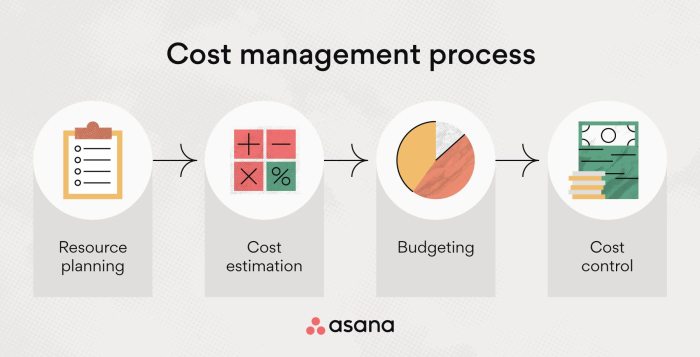Yo, peeps! Today we’re getting into the nitty-gritty of managing expenses effectively. Buckle up and get ready to level up your financial game with some dope tips and tricks.
Let’s dive into the world of expenses, budgets, tracking, and cutting costs to secure that bag, fam.
Understanding Expenses
Expenses refer to the money spent on goods or services to achieve a specific goal, whether it is for personal or business purposes. It is crucial to track expenses regularly to ensure financial stability and make informed decisions.
Types of Expenses
- Housing expenses: rent, mortgage, utilities
- Transportation expenses: gas, maintenance, public transportation
- Food expenses: groceries, dining out
- Entertainment expenses: movies, concerts, subscriptions
- Healthcare expenses: insurance, medical bills
The importance of tracking expenses lies in understanding where your money is going, identifying areas of overspending, and making necessary adjustments to achieve financial goals.
Creating a Budget
Creating a budget is crucial for effectively managing expenses and staying on track financially. By setting limits on spending and allocating funds to different categories, you can ensure that you are not overspending and are saving for future goals.
Step-by-Step Guide to Creating a Basic Budget
- List Your Income: Start by calculating your total monthly income after taxes. This will be the amount you have available to budget.
- Track Your Expenses: Keep track of all your expenses for a month to get an accurate picture of where your money is going.
- Create Categories: Divide your expenses into categories such as housing, transportation, groceries, entertainment, and savings.
- Set Limits: Determine a reasonable limit for each category based on your income and financial goals.
- Allocate Funds: Assign a specific amount of money to each category to ensure you stay within your budget.
- Monitor and Adjust: Regularly review your budget and make adjustments as needed to accommodate any changes in income or expenses.
Budget Categories and Allocation of Funds
Budget categories help you organize your expenses and prioritize where your money goes. By allocating funds to different categories, you can ensure that you are meeting your financial obligations and working towards your savings goals.
- Housing: This category includes rent or mortgage payments, utilities, and maintenance costs.
- Transportation: Budget for car payments, insurance, gas, and public transportation expenses.
- Groceries: Set a limit for food and household essentials to avoid overspending at the grocery store.
- Entertainment: Allow yourself some discretionary spending for dining out, movies, and other leisure activities.
- Savings: Make saving a priority by allocating a portion of your income to an emergency fund or retirement account.
Tracking Expenses

Tracking expenses is a crucial step in managing your finances effectively. By keeping a close eye on where your money is going, you can make informed decisions and plan for the future with confidence.
Methods for Tracking Expenses
- Manual Tracking: This involves jotting down every expense in a notebook or spreadsheet. It allows for a hands-on approach and can help you become more aware of your spending habits.
- Digital Tools: There are numerous apps and software available that can automatically track your expenses by linking to your accounts. These tools can provide detailed insights and analysis of your spending patterns.
Comparison of Manual vs Digital Tracking
- Manual Tracking: Requires more effort and discipline but provides a tangible record of expenses. It can be time-consuming and prone to errors.
- Digital Tools: Offers convenience and automation, saving time and providing real-time updates on your spending. It can also categorize expenses for better organization.
Benefits of Tracking Expenses
- Financial Awareness: Tracking expenses helps you understand where your money is going and identify areas where you can cut back.
- Budgeting: By tracking expenses, you can create a realistic budget based on your actual spending habits and financial goals.
- Financial Planning: With a clear picture of your expenses, you can make informed decisions about saving, investing, and achieving your long-term financial objectives.
Cutting Costs
When it comes to managing expenses effectively, cutting costs is a crucial aspect to consider. By reducing unnecessary expenses and negotiating better deals with service providers, you can significantly improve your overall financial health.
Reducing Unnecessary Expenses
One effective strategy for cutting costs is to identify and eliminate unnecessary expenses. This could include dining out less frequently, cancelling unused subscriptions, or finding more affordable alternatives for everyday purchases.
- Avoid impulse purchases and stick to a shopping list to prevent overspending.
- Consider buying generic brands instead of name brands to save money on groceries and household items.
- Reduce energy costs by turning off lights and unplugging devices when not in use.
Negotiating Better Deals
Another way to cut costs is by negotiating better deals with service providers. Whether it’s your cable company, cell phone provider, or insurance company, don’t be afraid to ask for discounts or explore other options for better rates.
- Research competitors’ prices and use this information to negotiate a lower rate with your current service provider.
- Bundle services like internet, cable, and phone to receive a discounted package deal.
- Consider switching to a different provider if you can find a better offer elsewhere.
Impact on Financial Health
By cutting costs and reducing unnecessary expenses, you can free up more money to put towards savings, investments, or paying off debt. This can have a positive impact on your overall financial health by helping you build a stronger financial foundation and achieve your long-term financial goals.
